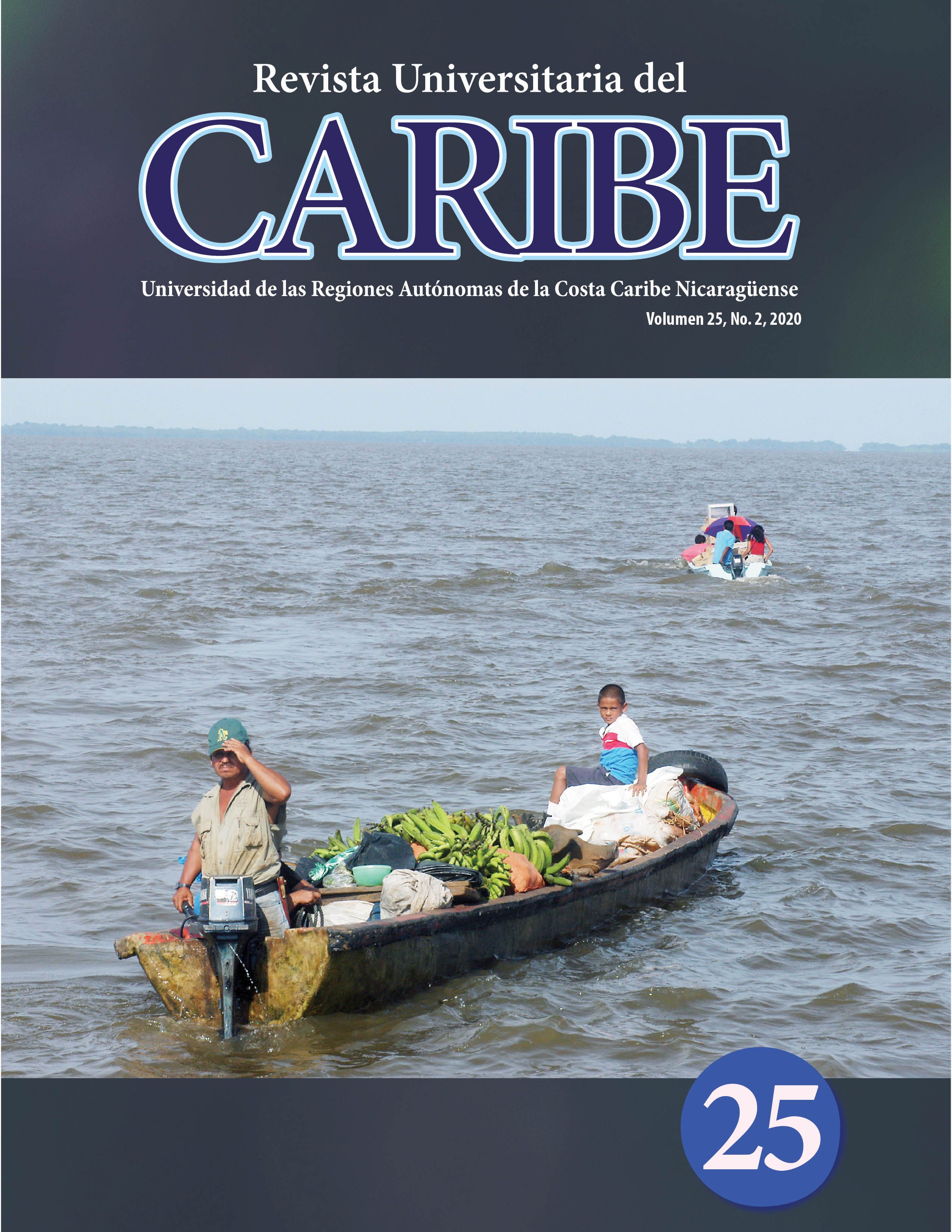Transformando pedagogías desde currículos universitarios interculturales
DOI:
https://doi.org/10.5377/ruc.v25i02.10469Palabras clave:
Currículo universitario intercultural, política curricular intercultural, pedagogías.Resumen
Actualmente los fenómenos de racismo y discriminación cultural en que vivimos, demandan una profunda revisión de las prácticas pedagógicas y de innovación educativas que se han agenciado en las universidades. Por lo que es vital transformar y crear la transversalidad de una política curricular intercultural que, asuma las diferencias culturales inherentes a las distintas áreas y contenidos del currículo para diligenciar respuestas pedagógicas a una propuesta política de los derechos culturales y de pertinencia. Este ensayo tuvo el propósito de caracterizar el Estado del Arte de la gestión curricular en la Universidad de las Regiones Autónomas de la Costa Caribe Nicaragüense (URACCAN). Se enmarcó en el paradigma cualitativo, en la perspectiva de la investigación educativa, con el enfoque teórico metodológico del Interaccionismo Simbólico (IS), modelo de investigación enfocado en la Teoría Fundamentada, con métodos y técnicas de investigación como el análisis documental, la entrevista y la discusión grupal. El análisis de los datos ha permitido conceptualizar el currículo intercultural, pilar de la gestión curricular en contextos multiétnicos y la necesidad de transformar las pedagogías en procesos recreativos del saber y prácticas interculturales y de pensamientos colectivos críticos para asumir los desafíos del siglo veintiuno.
Descargas
470
HTML 127
EPUB 170
XML 126
Resumen (Audio) 140
Abstract (Audio) (English) 156
Descargas
Publicado
Cómo citar
Número
Sección
Licencia
Propietario de los derechos de autor de los artículos: Los autores guardan los derechos de autor.

Esta revista está bajo una licencia de Creative Commons Reconocimiento-NoComercial-SinObraDerivada 4.0 Internacional. Esta licencia permite que otros puedan descargar las obras y compartirlas con otras personas, siempre que se reconozca su autoría, pero no se pueden cambiar de ninguna manera ni se pueden utilizar comercialmente.

